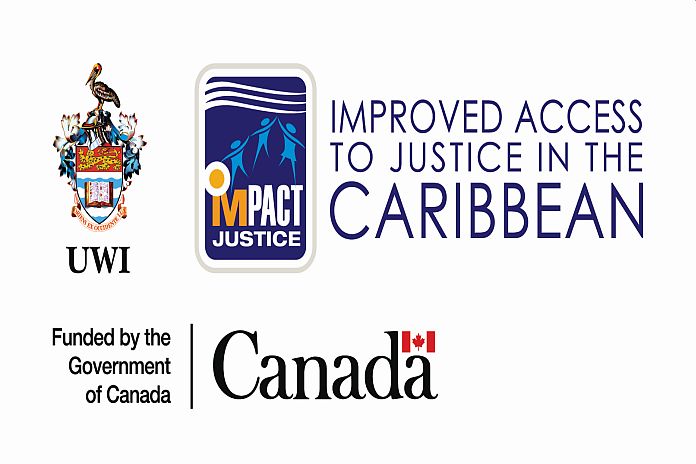BRIDGETOWN, Barbados – The Canadian government-funded Improved Access to Justice in the Caribbean (IMPACT Justice) Project recently published its “Report on Access to Justice for Persons with Disabilities in CARICOM Countries”. This report provides an overview of the United Nations Convention on the Rights of Persons with Disabilities, 2006 and its accompanying Protocols as implemented by the following 11 CARICOM Member States: Antigua and Barbuda, Barbados, Belize, Dominica, Grenada, Guyana, Jamaica, St. Kitts and Nevis, Saint Lucia, St Vincent and the Grenadines and Trinidad and Tobago.
The Report is also an expansion of the scope of the Project’s 2017 study, which was designed to review the issue of access to justice for persons with disabilities in OECS Member States only. This 2017 study also provided the basis for the creation of the Project’s series of protocols and guidelines for persons within the justice sector who work with persons with disabilities.
With respect to the new study, one of the key features of this report is the analysis of the results of the Project’s Access to Justice for Persons with Disabilities in the Caribbean Survey conducted in 2020. In analysing these results, the Report draws attention, in the words of persons with disabilities, on how they access justice in comparison to society in general.
Issues highlighted in the responses of persons who participated in the survey reveal continued deficiencies in the provision for access to buildings in which persons with disabilities do business, including courthouses; the need for amenities such as disability-friendly bathrooms; improved arrangements for transportation; and accommodation for the hearing and sight-impaired. Ultimately, the responses show a need for further interventions that would provide an opportunity for persons with disabilities to enjoy full and effective participation in society on an equal basis with others.
IMPACT Justice hopes that this study will be useful for the information it provides policymakers, the general public and justice sector officials on the views of persons with disabilities on how they are treated generally, and by the justice sector. In addition, it is hoped that the findings of this report would bolster regional governments in their resolve to enact legislation setting out the rights of persons with disabilities in accordance with the UN Convention.
In the near future, the Project will publish another report which will analyse cases taken to the UN Committee on the Rights of Persons with Disabilities to show how the Committee has addressed the myriad of impediments faced by persons with disabilities in accessing justice.
In addition to this work, the Project has also undertaken a study on Access to Justice for the Elderly in CARICOM Countries which it hopes to complete in the coming months.





